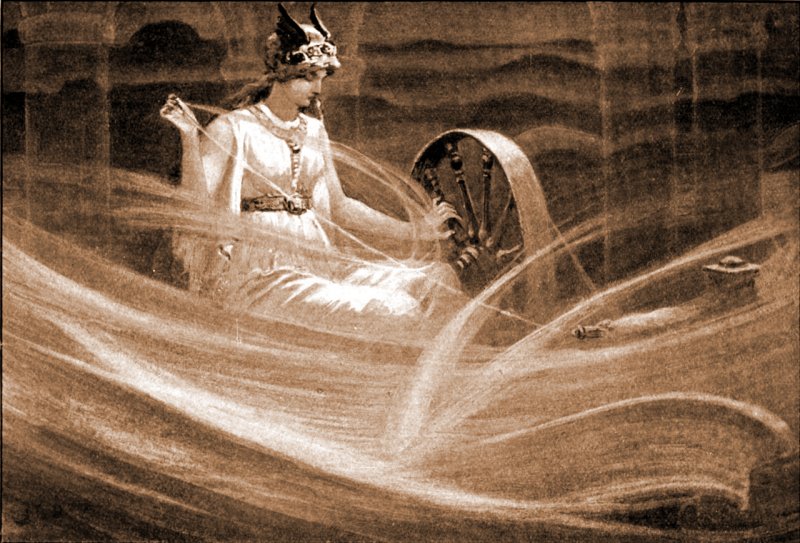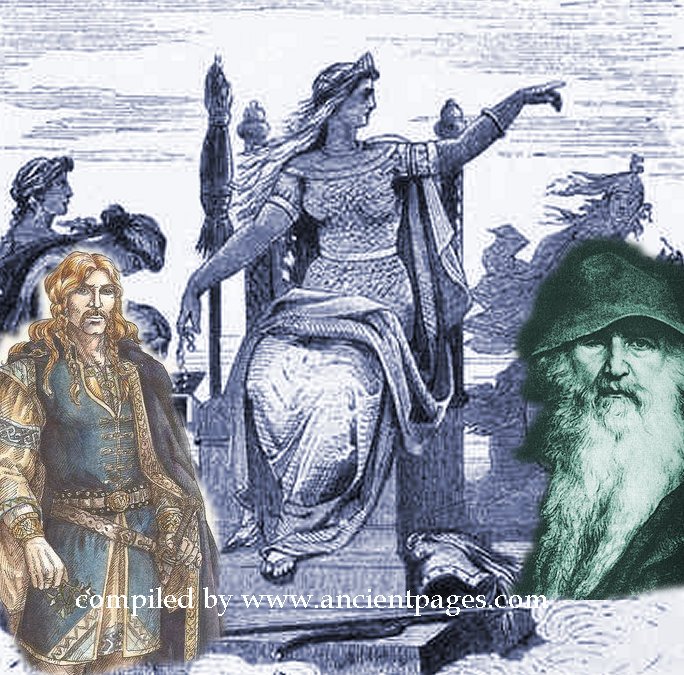Frigg: Chief Norse Goddess Who Knew Secrets Of Humans’ Fates
A. Sutherland - AncientPages.com - Frigg is an early European goddess and a prominent mythological figure in Norse mythology.
In Norse beliefs, she was the personification of the sky, clouds, and the earth and the ruler of Asgard as the chief of the female goddesses representing the Norse pantheon of gods.
Frigga Spinning the Clouds. Guerber, H. A. (Hélène Adeline) (1909). Myths of the Norsemen from the Eddas and Sagas. Public Domain
Her name means "the beloved," "the friend," "the wife," and "dear."
She is the goddess of love, maternity, marriage, and the household.
Although Frigg was the goddess of family, motherhood, and protector of marriage, she was unfaithful to Odin several times, including his brothers.
She was the mother of Balder, the god of the sun and light, and Höder and Hermod. As the wife of Odin, she shared his throne, Hildskjalf, from which Odin could see all lands.
In a part of Prose Edda, "Gylfaginning," Snorri mentions the high seat of Odin, saying that "there is one abode called Hliðskjálf, and when Allfather sat in the high seat there, he looked out over the whole world and saw every man's acts, and knew all things which he saw."
To Frigg belonged the headquarters of Fensalir, a palace of mists, where she, accompanied by her eleven handmaidens (also goddesses), used to sit at her jewel-covered spinning wheel to make strands of golden thread and create wonderful brightly colored clouds.
Her remarkable weaving abilities were highly appreciated.
Divine Maidens Of Frigg
As the queen of goddesses, Frigg had a group of divine females around her. The goddesses Lin, Fulla, and Gna, were closely associated with Frigg.
Peter A. Munch describes these three divine ladies:
"…Lin is set to guard those of humanity whom Frigg desires to preserve from harm. Fulla, a maiden with long flowing hair and a golden chaplet about her brow, carries Frigg's hand casket, keeps watch and ward over her shoes, and shares her secrets. Gna runs errands for Frigg through the various worlds, especially in matters requiring despatch, in which she rides the horse Hofvarpnir, who races through the air and over the waters."
The other maidens of Frigg were busy with other duties, which more or less were associated with different attributes of the chief goddess.
Frigga and the Beldame - Illustration by Harry George Theaker for Children's Stories from the Northern Legends by M. Dorothy Belgrave and Hilda Hart, 1920. Image credit: Harry George Theaker, illustrator - http://www.germanicmythology.com/works/THEAKERART1920.html - Public Domain
One was a highly skilled healer; another could easily remove all obstacles disturbing love affairs, and yet another was responsible for punishing those who broke their trust and confidence.
Frigg's Appearance, Attributes, And Her Headquarters Fensalir
The goddess was a very handsome, tall lady. Her head was often decorated with plumes, and keys hung from a beautiful golden girdle around her waist. The keys symbolized the northern housewives Frigg protected and guarded, while the plumes symbolized feathery clouds in the sky.
As the personification of the sky, Frigg was often depicted wearing an oversized blue coat, symbolizing the sky, according to a myth. Like the goddess Freya, she was supposed to be the owner of a falconry robe that would allow her to change her character.
Frigg's main symbols include the full moon, the sky, the spinning wheel, spindle, mistletoe, and silver, many of which are shown in artistic representations of the goddess.
As to her abode, Fernsalir (Old Norse "Fen Halls"), the descriptions of the place vary. In one version, it was described as a beautiful place; in another, it was a gloomy place associated with the mists and darkness, and through this place, Frigg appears to have a link to Hel, ruler of the underworld and a daughter of Loki, the trickster.
Power Of Knowing People's Fate
Frigg possessed foreknowledge and could access the secrets of humans' fates. She was said to hold knowledge of people's continued fate through her husband Odin but could not reveal these secrets. However, according to Snorri's Prose Edda Prologue, both Frigg and Odin possessed the gift of prophecy.
Odin often consulted his wise wife on many issues, and although Frigg did not devote herself to divination, she knew a lot about the future.
As a weaver, she makes us think about the Greek Fates, also skilled weavers responsible for controlling time by measuring fiber length with the help of their spinning wheels.
There is also a resemblance between Frigg and the Slavic spirits of fate and judgment, the Sudice. Both were responsible for the futures and destinies of humanity. They judged and meted out fortune and fatality.
Frigg Was A Popular Goddess
Her name was popular among German and English tribes, and the cult of Frigg survived in ancient places in Sweden and Norway.
Most famous is a myth describing the death of Balder and Frigg's desperate attempts to protect him from death.
Frigg had to cry twice in the history of the world. She wept for her son Balder in her palace, Fensalir, for the first time while mourning her beloved son. In the same way, she will regret her husband, Odin, at Ragnarok (Ragnarök), the end of the world.
During his fight with the wolf Fenrir, he is consumed by the monster. The völva predicted it would occur during the last battle of gods with giants and other chaos monsters.
The Goddess Frigg Will Survive Ragnarok
Due to some of her domains, Frigg was sometimes associated with Freya, another popular goddess in Norse beliefs. Occasionally, several functions of these two goddesses are mixed. Some scholars suggested that Frigg and Freya once represented only one goddess, later divided into two characters.
Frigg is mentioned throughout the Poetic Edda, the Icelandic medieval manuscript known as the Codex Regius, in the poems Völuspá, Vafþrúðnismál, the prose of Grímnismál, Lokasenna, and Oddrúnargrátr. According to ancient beliefs, the English weekday name Friday comes from Old English Frigedæg, meaning 'day of Frig.'
This day was considered the best day to get married.
Updated on Sep 9, 2023
Written by – A. Sutherland AncientPages.com Staff Writer
Copyright © AncientPages.com All rights reserved. This material may not be published, broadcast, rewritten or redistributed in whole or part without the express written permission of AncientPages.com
Expand for referencesReferences:
Spence L. A Dictionary of Non-Classical Mythology
Munch P. A. Norse Mythology, Legends of Gods and Heroes
Bulfinch, T. Bulfinch's Mythology
More From Ancient Pages
-
 Mysterious Ancient Stone Structure Discovered In Torreano, Italy
Archaeology | Mar 29, 2023
Mysterious Ancient Stone Structure Discovered In Torreano, Italy
Archaeology | Mar 29, 2023 -
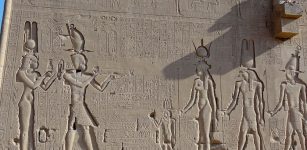 Why The Discovery Of Cleopatra’s Tomb Would Rewrite History
Featured Stories | Nov 16, 2022
Why The Discovery Of Cleopatra’s Tomb Would Rewrite History
Featured Stories | Nov 16, 2022 -
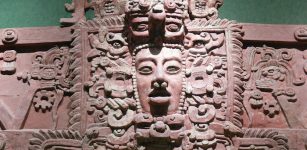 Fixing Archaeology’s Dating Problem – New Method Developed By Scientists
Archaeology | Sep 17, 2021
Fixing Archaeology’s Dating Problem – New Method Developed By Scientists
Archaeology | Sep 17, 2021 -
 Mysterious Rongorongo Script Remains Undeciphered – Does It Contain A Prophetic Warning?
Featured Stories | Mar 24, 2014
Mysterious Rongorongo Script Remains Undeciphered – Does It Contain A Prophetic Warning?
Featured Stories | Mar 24, 2014 -
 Amaterasu: Shinto Goddess Of The Sun And Priestess-Queen Sister To Controversial Susanoo God Of Storms
Featured Stories | Jan 25, 2019
Amaterasu: Shinto Goddess Of The Sun And Priestess-Queen Sister To Controversial Susanoo God Of Storms
Featured Stories | Jan 25, 2019 -
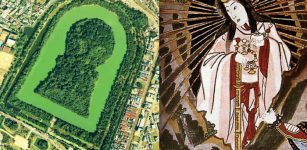 Mysterious Kofun – Ancient Japanese Tombs Were Aligned Towards The Rising Sun And Goddess Amaterasu – Satellite Images Reveal
Archaeology | Jan 20, 2022
Mysterious Kofun – Ancient Japanese Tombs Were Aligned Towards The Rising Sun And Goddess Amaterasu – Satellite Images Reveal
Archaeology | Jan 20, 2022 -
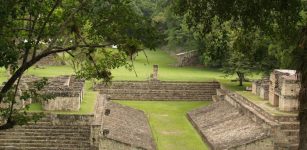 On This Day In History: First European Sights The Ruins Of Ancient Maya City Of Copán – On Mar 8, 1576
News | Mar 8, 2017
On This Day In History: First European Sights The Ruins Of Ancient Maya City Of Copán – On Mar 8, 1576
News | Mar 8, 2017 -
 Recent Unexpected Findings Of Early Sweet Potato Cultivation In Polynesia
Archaeology | Oct 2, 2024
Recent Unexpected Findings Of Early Sweet Potato Cultivation In Polynesia
Archaeology | Oct 2, 2024 -
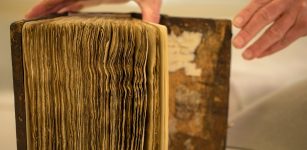 Hidden Text Of Medical Book By Doctor Galen Read For The First Time In 1000 Years
Archaeology | Mar 24, 2018
Hidden Text Of Medical Book By Doctor Galen Read For The First Time In 1000 Years
Archaeology | Mar 24, 2018 -
 Advanced Ancient Technology – Talos A Greek Robot Created By The God Of The Forge
Featured Stories | Jun 28, 2014
Advanced Ancient Technology – Talos A Greek Robot Created By The God Of The Forge
Featured Stories | Jun 28, 2014 -
 Mysterious Footprints In Tanzania Made By Early Humans Not Bears
Archaeology | Dec 1, 2021
Mysterious Footprints In Tanzania Made By Early Humans Not Bears
Archaeology | Dec 1, 2021 -
 Ice Age Engraved Stones, Tools Unearthed At Jersey Hunter-Gatherer Site Dated To Magdalenian Culture
Archaeology | Nov 3, 2015
Ice Age Engraved Stones, Tools Unearthed At Jersey Hunter-Gatherer Site Dated To Magdalenian Culture
Archaeology | Nov 3, 2015 -
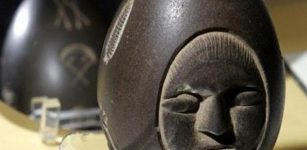 America’s Ancient “Mystery Stone” Remains An Unexplained Puzzle
Artifacts | Apr 17, 2014
America’s Ancient “Mystery Stone” Remains An Unexplained Puzzle
Artifacts | Apr 17, 2014 -
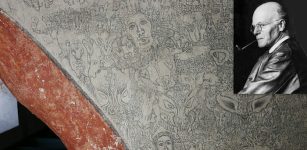 Mystery Of The Demon Wall In Sauherad Church Finally Solved
Archaeology | Dec 15, 2021
Mystery Of The Demon Wall In Sauherad Church Finally Solved
Archaeology | Dec 15, 2021 -
 What Is The Avoidance Custom Of The Amish People In Pennsylvania?
Ancient History Facts | Jul 29, 2019
What Is The Avoidance Custom Of The Amish People In Pennsylvania?
Ancient History Facts | Jul 29, 2019 -
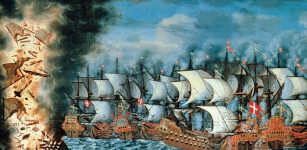 On This Day In History: Dramatic Battle Of Öland – On June 1, 1676
News | Jun 1, 2016
On This Day In History: Dramatic Battle Of Öland – On June 1, 1676
News | Jun 1, 2016 -
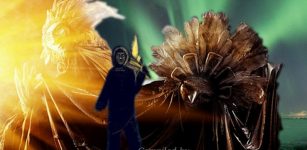 Igaluk – Powerful Eskimo Moon God That Directs Natural Phenomena
Featured Stories | Feb 13, 2019
Igaluk – Powerful Eskimo Moon God That Directs Natural Phenomena
Featured Stories | Feb 13, 2019 -
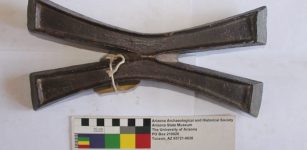 Copper Artifacts Reveal New Cultural Connections In Southern Africa
Archaeology | Mar 23, 2023
Copper Artifacts Reveal New Cultural Connections In Southern Africa
Archaeology | Mar 23, 2023 -
 Scientists In Antarctica Encounter Something Very Strange
Featured Stories | Mar 9, 2020
Scientists In Antarctica Encounter Something Very Strange
Featured Stories | Mar 9, 2020 -
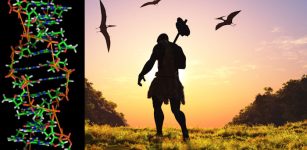 Humans Carry DNA From An Ancient, Unidentified Ancestor – Scientists Say
DNA | Apr 13, 2023
Humans Carry DNA From An Ancient, Unidentified Ancestor – Scientists Say
DNA | Apr 13, 2023

